Here we are, in the last week of a year that cost us Prince, David Bowie and (man, seriously?) Carrie Fisher. The year that left us with a racist sexual predator as the presumptive President of the United States and reinvigorated the worst tendencies of lowest common denominator. It’s hard to not feel unsteady about where the world’s heading right now but it’s worth noting that all the films that make up Deadshirt’s list of the ten best films of 2016 are—on some level—about some kind of hope.
Whether that’s redemption for a pair of bumbling “nice guys,” a closeted gay man’s salvation in his lover’s carefully prepared meal, or Steve Rogers’ unwillingness to compromise in the face of rising fascism. Even Deadpool, beneath the dick jokes and exploding heads, is a ultimately movie about a guy fighting for the woman he loves. Whatever horrors 2016 offered up, it was met hand in hand with films that inspired or touched us in a real way. Some small comfort going forward but an important one nevertheless. Here’s Deadshirt’s list of the ten best films of 2016:
10. Popstar: Never Stop Never Stopping
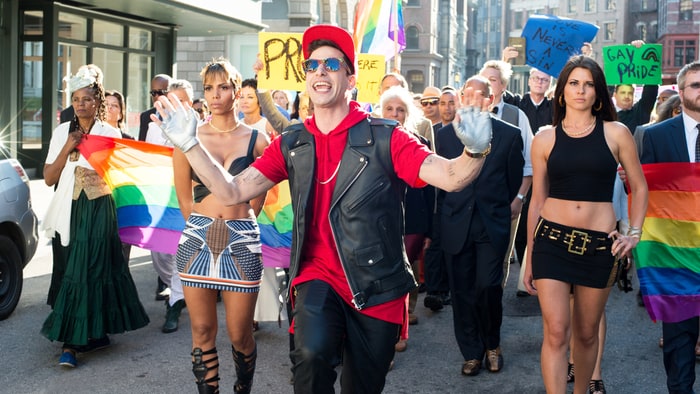
One of the most underrated comedies of the year, Popstar: Never Stop Never Stopping is a hilarious sendup of celebrity ego and excess. Andy Samberg stars as “Connor4Real,” a self-absorbed popstar that could have been grown in a lab from Justin Bieber’s and Macklemore’s stolen DNA. Popstar is presented as a documentary meant to promote Connor’s highly-anticipated new album (after his first, the modestly titled Thriller, Also) but instead captures his rapid fall from grace. One could argue that some music megastars are already parodies of themselves, but Popstar soars when it’s at its most absurd, like when Connor’s attempt at repairing his image with a publicized marriage proposal serenaded by Seal is destroyed by a pack of wolves. Or in a scene I can only describe in two words: bees, flamethrower.
Andy Samberg hits a creative high as Connor4Real—like too many real celebrities to name, Connor’s charismatic even when his face is at its most punchable, and yet he displays real vulnerability when he hits rock bottom. For a movie focused on a narcissist, it’s the supporting cast that makes Popstar sublime, from Bill Hader as a roadie morbidly obsessed with the movie Flatliners, to Chris Redd as the up and coming rapper who All About Eve-s Connor. Will Arnett, Eric Andre, and Chelsea Peretti nearly steal the show in the best running gag, a lacerating parody of the squawking vultures at TMZ.
Written, directed by, and starring The Lonely Island, Popstar never feels like a string of SNL digital shorts stitched together—and, oh yes, the songs are really fucking funny. Connor’s over-produced, jaw-droppingly juvenile songs are still incredibly catchy earworms, particularly “I’m So Humble” (featuring Hologram Adam Levine) and Connor’s tone-deaf ode to marriage equality, “Equal Rights.” Though it may not be the next Spinal Tap, Popstar is at least the next Josie and The Pussycats: a compulsively rewatchable time capsule of a ridiculous era in pop music.
– Kayleigh Hearn
9. Deadpool
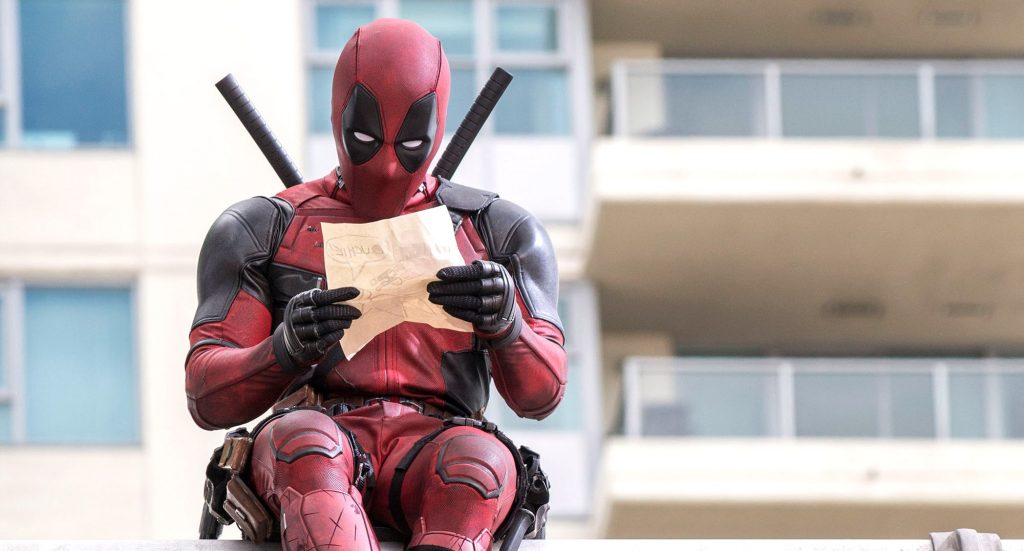
The fact that Deadpool got made at all is just short of a miracle, made in large part due to the decade-long perseverance of the handsome Canadian man playing the titular character. Sure, Deadpool is annoyingly popular, but everything about him seemed difficult to translate to film—he’s too violent, too vulgar, too much of a gimmick, and it would require the aforementioned handsome Canadian to either wear a mask or look disgusting for most of the film. Somehow, Tim Miller and Handsome Canadian Ryan Reynolds managed to take a character best used in small doses and made a satisfying feature-length film that never got stale.
Deadpool used the conventions of the superhero film specifically to subvert them. It exists squarely within the X-Men cinematic universe, while standing squarely on its own. It tells an origin story without getting bogged down in backstory. It takes a trash-talking badass and knows just the right times to make him vulnerable and sensitive.
Perhaps the biggest lesson from Deadpool, certainly one that was covered the least, was that studios don’t necessarily need a huge budget for a superhero film. If enough people involved are vested in the characters and the source material, a good story will carry a film. In an era when seemingly every superhero film has to be a noisy event packed to the brim with cameos, guest appearances, and other heroes straight up taking over the film, Deadpool showed that all we needed was a solid lead and a small, well-written supporting cast.
– David Lebovitz
8. Zootopia
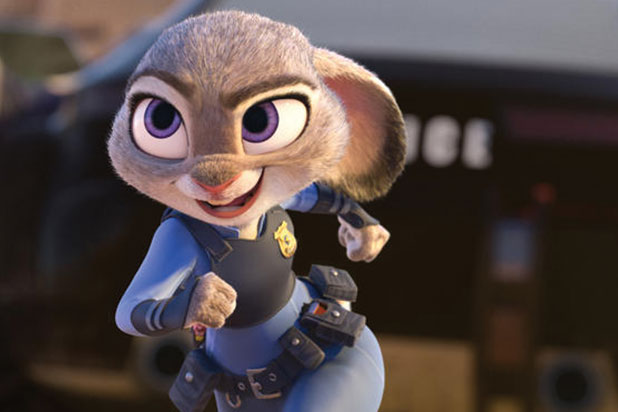
Given the way 2016 has turned out, Disney releasing a movie about a politician using prejudice and fear-mongering to grab power in an increasingly multicultural and diverse society was rather prescient. The allegory was also surprisingly complex, dealing with the ways that prejudice is internalized and how well-meaning people (or animals) often perpetuate the very systems of control and oppression they profess themselves opposed to. Plus, the story focused on how police officers’ judgement is affected by these prejudices, and how simply appointing one or two diversity hires won’t fix the problems if you don’t reform the institutional culture…I’m still surprised that Breitbart wasn’t picketing this movie, to be honest.
But I doubt I would have thought so highly of Zootopia merely because it was politically incisive. Disney Animation pushes the envelope each year in terms of what they accomplish with their CGI animation and Zootopia shows how much they have accomplished. The titular city was an amazing creation: made up of numerous biomes for varied species that call the city home, each biome/neighborhood feeling like a lived-in, complex place. The sequence where Ginnifer Goodwin’s bunny cop chases a perp through several neighborhoods, each different in scale and environment, stands as one of the year’s highlights in action sequences.The character animation, which encompasses dozens of species, showes a similar amount of care and detail.
To top it off, the voice cast led by Ginnifer Goodwin and Jason Bateman (as well as Bonnie Hunt, Jenny Slate, J.K. Simmons, and Idris Elba) did a great job of grounding a high-concept world in real “people” with real problems, hopes, and flaws. 2016 might have been a year when prejudice seemed to triumph, but Zootopia shows that if you are willing to face it down, not just in the world around you, but in yourself, things can get better.
– Robby Karol
7. Star Trek Beyond
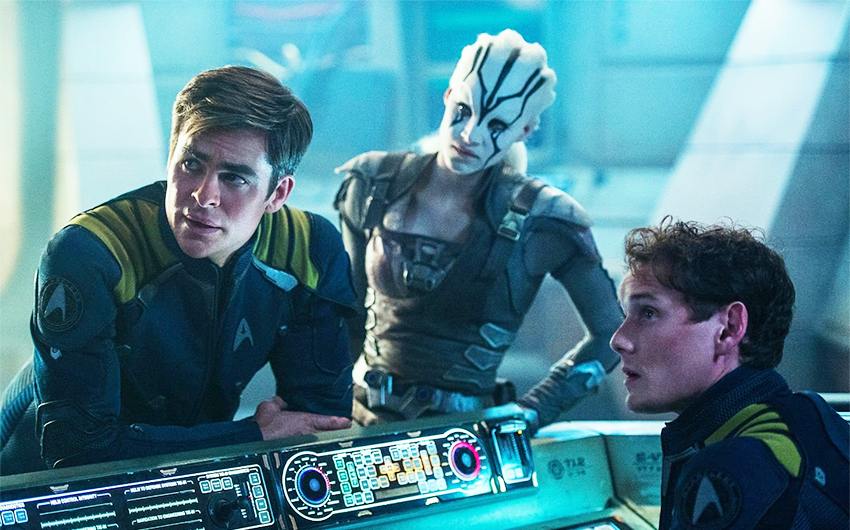
While everyone’s been scrambling to talk about the anti-fascist message of Rogue One, we’ve all forgotten that it’s only the second major sci-fi franchise movie this year about a ragged band of multi-ethnic heroes pitted against a xenophobic villain. The first? Justin Lin’s Star Trek Beyond.
Beyond is a rousing, technicolor celebration of the wonders of teamwork, featuring the best of Lin’s eye for action scenes and a script by longtime fan and Scotty actor, Simon Pegg. The film’s actually at its best when Pegg is a little irreverent of Trek’s tropes, spending very little time exchanging quips on ship bridges, and way more time in some breathtaking action. Trek can be plodding, verbose, and technobabble heavy. Beyond climaxes with a sequence where the crew flies a repaired ship through a drone swarm, blaring “Sabotage” because the drones break if your music is loud enough.
It’s a great sequence but the script is also deeply rooted in Star Trek’s most classic theme: humanity’s place among the stars. Idris Elba’s Krall sees the Federation’s multiculturalism as a threat, but the United Federation of Planets is all about unity. It’s there in the name! The crew of the Enterprise are the epitome of that unity, and their ability to apply it ultimately saves the day in Star Trek Beyond. It’s a message that’s not just present in good Trek; it’s in all good sci-fi.
– Adam Pelta-Pauls
6. Captain America: Civil War
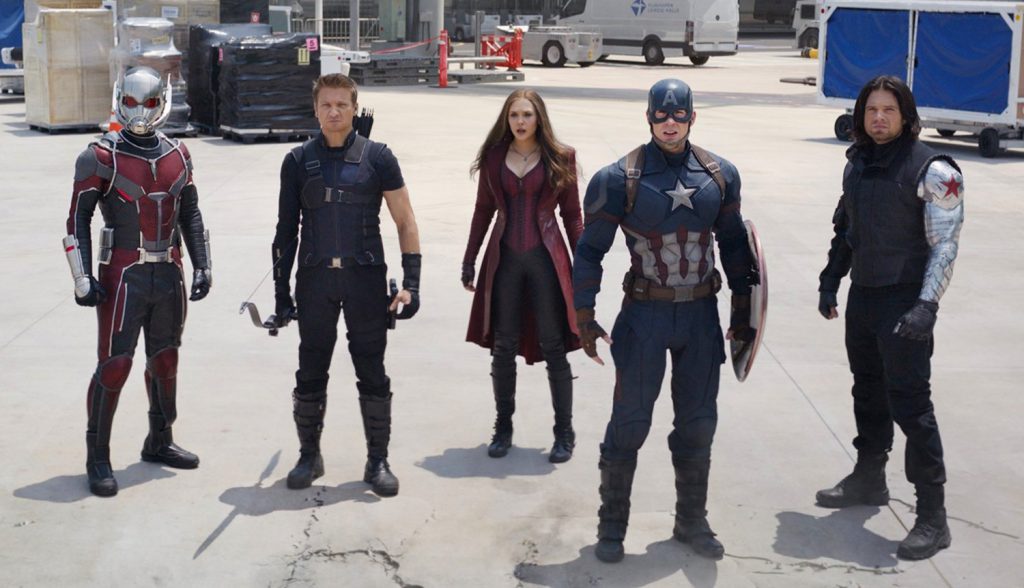
The cinematic attempt at Marvel Comics’ Civil War event is the most daunting super hero assemblage on film, but thanks to the bones already set by the MCU and some solid writing, this third Cap installment is largely successful. After the Avengers’ battles in New York, Sokovia, and Lagos produce too much collateral damage (and after Robert Downey Jr.’s Tony Stark gets a bout of well-timed guilt), the governments of 117(!) countries decide it’s time to put a leash on its unchecked supers. Captain America (Chris Evans, once again delivering my favorite page-to-screen comic book character performance) has a bit of an issue with this, since he’s all about, you know, freedom and liberty and friendship. And when the former Winter Soldier Bucky Barnes (Sebastian Stan) is accused of blowing up an assembly of ambassadors and killing the king of Wakanda, lines are drawn in the sand all over the place and the Avengers take it out on each other.
The bulk of Captain America: Civil War is a mix of gorgeously choreographed action sequences and witty banter between team-ups. It’s also genuinely funny, with inspired decisions like cramming Cap, Bucky, and Falcon into a Volkswagen Beetle. What gives the film depth, however, are the character moments. Sure, the film suffers from the sheer number of characters, but screenwriters Christopher Markus and Stephen McFeely manage to squeeze in enough meaningful dialogue to inform each character and give them a genuine purpose in the plot so that no one feels extraneous. Even newcomers Chadwick Boseman as Black Panther and Tom Holland as Spider-Man already know their characters inside and out and deliver incredibly authentic, though brief, performances.
It’s eventually revealed that the infighting between friends was actually orchestrated by Colonel Helmut Zemo (Daniel Bruhl) in an act of revenge for his family’s death in Sokovia. Zemo plays on the insecurities and hypocrisies of Tony Stark, who criticizes Cap for not keeping Scarlet Witch in check while letting the unknown, awesome power of Vision and his forehead Infinity Stone flaunt about cooking sauces. It turns out that everyone is a little wrong and a little right, but this is a Captain America movie, and we all know who is going to shoulder the heavy, complicated label of “hero” in the end.
– Sarah Register
5. Shin Godzilla
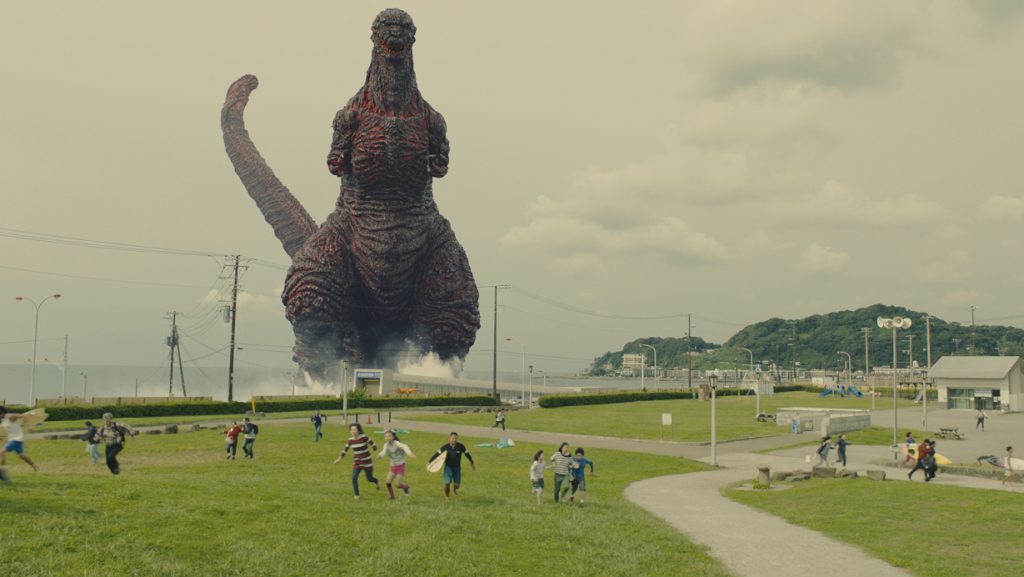
Shin Godzilla is an effective companion piece to the high-profile US Godzilla revival. While the Legendary Pictures franchise is concentrating on bringing the joy and presence of Godzilla that we all remember, Toho Studios is digging deeper for a mood of unstoppable dread. This is an unmistakable tonal reference to the lauded 1954 original, which is also reflected in the design of the beast.
The movie chooses to focus on the characters who would logically have the most to do in a giant monster attack: civil servants and bureaucrats. This choice, which it’s hard to see a Hollywood studio making given their fixation on soldiers and Everymen, makes the film a lashing satire of recent events such as Fukushima—if you’re fast at reading subtitles, that is.
Directors Anno and Higuchi combine the truly unexpected with lovingly obscure homages to the past. Some have critiqued the Japanese nationalism in the film, but to me it‘s tame compared to your average US blockbuster, and international cooperation is emphasized in a nod to 1954 director Ishiro Honda. Given the modest budget, I was concerned that we had seen all of the effects shots in the trailers—not even close. Godzilla’s ultimate destruction of Tokyo is awesome, in much the same way as it must have been in 1954. The triumph of Shin Godzilla is in evoking the past legacy of Godzilla without becoming bogged down by it.
– Patrick Stinson
4. Hail, Caesar!
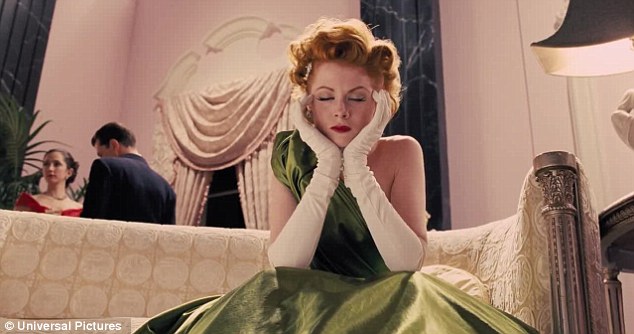
There’s been a huge dry spell of Coen Bros. movies lately since 2013’s Inside Llewelyn Davis, so this year’s classic old Hollywood caper Hail, Caesar! was a nice surprise. The movie is essentially a love letter to old Hollywood covering a variety of genres from extravagant Broadway-style pro-war musicals to stuffy over-costumed Academy Award bait that the Coens love to satirize. A scene involving Channing Tatum in a sailor outfit performing an intricate, homoerotic dance number lamenting the lack of any “dames”—in part due to the stunning choreography—is one of the best filmed sequences this year. Alden Ehrenreich’s underrated performance as clueless “singing cowboy” Hobie Doyle trying and failing to act as a leading man to the horror of snooty director Laurence Laurentz (Ralph Fiennes) is another standout.
There’s no deep, intricate story to be found in Hail, Caesar! but the movie is a delightful series of mishaps and well-written characters that is uproariously funny and engaging throughout. The Coen Bros. even make the subtle comparison that old Hollywood and modern Hollywood aren’t so different in their often complex relationship to politics and the economy. “Would that it ‘twere so simple.”
– Andrew Niemann
3. Hell or High Water
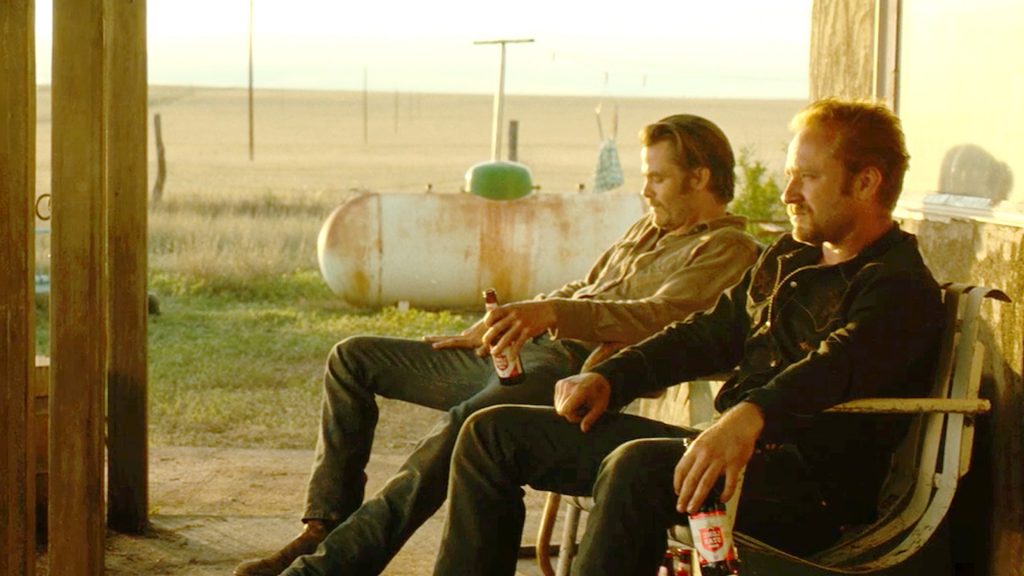
The trailer for Hell or High Water suggests the kind of brutal, uncompromising crime drama that sears itself into your mind after one viewing, leaving you no reason to ever revisit it except perhaps for academic reasons. It almost is; director David Mackenzie (Starred Up) and screenwriter Taylor Sheridan (Sicario) paint a bleak, violent portrait of a declining West Texas that’s been continually screwed over by greed and loss. Once you see those first stark, dusty frames of the film, it’s easy to start planning out how you’re going to slit your wrists once you get home.
What you don’t count on is how damn entertaining this movie is, and how oddly appropriate it all feels. Despite all the violence, all the misery that surrounds these characters, there’s a fascinating heart to it all that sets this movie apart from the other hard-boiled crime dramas that slip into the multiplexes every year or so. I put a lot of this on the laconic work of the reliable Jeff Bridges, as well as the just-off-type career best performances of Chris Pine and Ben Foster. But there’s also an interesting poetry to the film that comes naturally from the same setting that smothers it in so much desolation; the sense of duty to our family, and to our fellow man, and how important it is to honor that when nothing else worth having is in reach. When the film swings for emotion, it connects, but as happy or as sad or as angry as you might feel, it also somehow just feels right.
– Chuck Winters
2. Moonlight
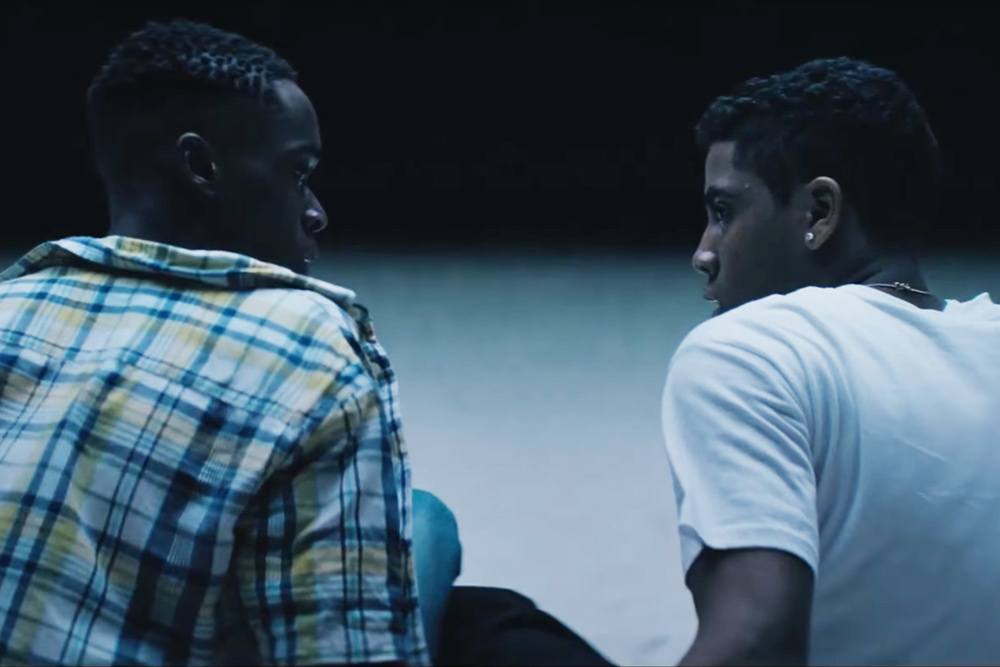
Around awards season, the marketing for prestige films lays heavily into hyperbolic pull quotes and nauseatingly emphatic praise. But Moonlight is one of the few films whose unique power is capable of exceeding even the loftiest plaudits. Nearly a decade after the underrated gem Medicine For Melancholy, director Barry Jenkins has returned to tell a story worthy of the potential his debut implied. Moonlight is a gorgeously photographed, brilliantly acted exploration of masculinity and the psychological underpinnings that form one’s identity, sexual or otherwise.
Through the tale of Chiron, a young man played by three equally talented performers through the film’s triptych of life chapters, Jenkins and his collaborators have crafted a rapturous look at what it means to be a black man in America. About how the many strictures societal circumstance begins to shackle them with as children has a profound effect on the men they end up becoming. Chiron’s journey is heartbreaking, from “Little” (Alex Hibbert), the boy who can’t understand why the bullies call him “faggot”, to the outcast teenager (Ashton Sanders) who discovers a side of himself his surroundings fail to foster, to “Black” (Trevante Rhodes), the grown man who builds an entire new persona out of what the world expects him to be.
But if the film was merely a maudlin jaunt through the successive ways being outfitted with black skin leads to exponential disappointment, it would only possess a fraction of its appeal. What makes Moonlight special is the brief moments of hope, of joy, of nourishing love Chiron experiences between the painful chapter breaks.
– Dominic Griffin
1. The Nice Guys
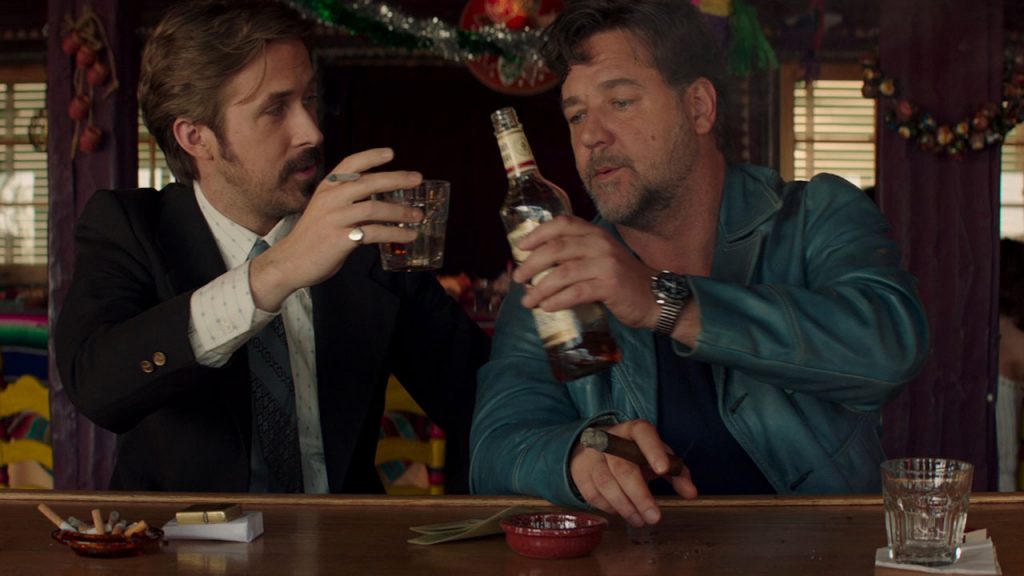
“I wish I wished for things, man” is Ryan Gosling’s ostensible first line in The Nice Guys—Shane Black’s 70s-era Los Angeles whodunnit—and it’s the perfect thesis statement for the movie’s sadsack heroes, reluctant legbreaker Jackson Healy (Russell Crowe) and cowardly drunk P.I. Holland March (Ryan Gosling).
It’s a tired cliched to say that “___ is a character in its own right” but the L.A. of The Nice Guys feels real and unidealized in a way few period pieces do. Characters are plagued by worries both foreign (the threat of killer bees) and familiar (industrial interests polluting the environment) to a contemporary audience. When Gosling’s March bemoans “the end of ladies and gentlemen” after a teenage source cynically offers to show him his penis for $20, it’s a funny gag grounded in a father’s honest anxiety for his daughter’s future. How many action movies can pull THAT kind of story beat off?
The Nice Guys isn’t just a great action movie, and it isn’t just the best comedy of the year; it’s too remarkably strange in its eccentricities to box it in like that. Our leads are buffoons who twist in the wind helpless without the calculating Nancy Drew brilliance of March’s young daughter Holly. March routinely humiliates himself and screams in terror when faced with a new gun-toting henchman, and there’s an entire long con gag about an ankle holster that doesn’t actually exist outside of a dream. Healy and March are, well, losers. The Nice Guys is an ode to losers, but more that that, it’s a movie that’s predicated on the idea that we can all stumble blindly toward being better people if we watch out for one another.
– Max Robinson

